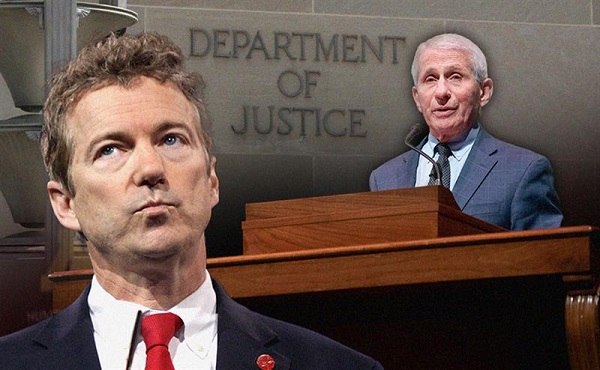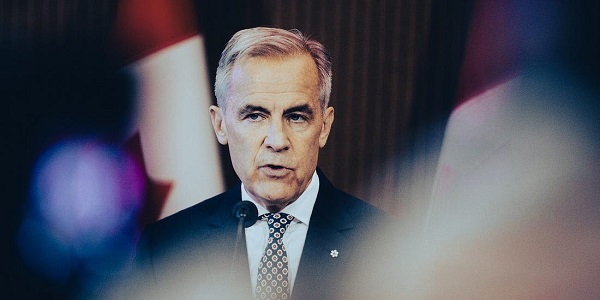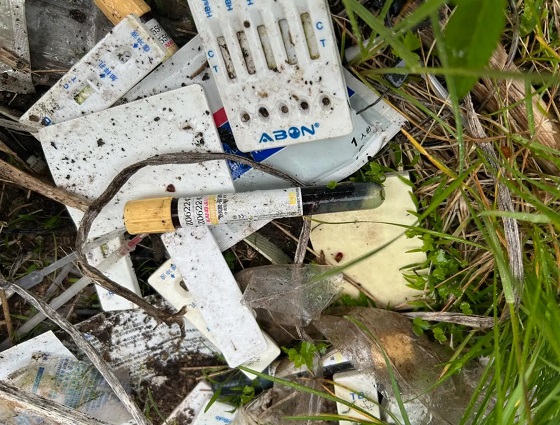Agriculture
How would you like it if someone came on to your land to build a pipeline?

How would you like it if someone came on to your land to build a pipeline?
This is one of the questions you’ve no doubt heard in the media lately. A common question from protestors and their supporters. It’s been posed to media reporters asking protestors why they’re trying to shut down Canada. It’s been used as a headline for editorials in big newspapers. If you live in a city or even a small community you’ve never had to deal with a company that wants to build a pipeline on your property. That seems to make this question a good one.
However I come from a farming community and it occurred to me that I might just know some people who’ve had experience with pipeline companies. So I decided to message a friend of mine. He used to be a pretty good hockey player when we were growing up. He played with a temper. Years may have passed but I know he’s definitely no push over. Devon is not the kind of guy who’d let anyone walk all over him. Even a big pipeline company.
Turns out Devon actually has lots of experience with pipelines. When he moved onto his acreage 20 years ago there were already 5 lines running under it. 2 more lines have been buried since. The last one came through just last year. If you look at the first map you can see a place called Herschel. Herschel is Devon’s territory. The map shows where Enbridge Line 3 Replacement cut through his property just last year. The second map shows just how many lines are following that same route.


When I discovered a new line had been put down in the last year I thought he’d have some fresh memories of how that affected his life. It was my chance to ask someone who actually knows “How would you like it if someone came on your land to build a pipeline?”
Me: “What happens during construction?”
Devon: “The only inconvenience during pipeline construction for us has been delays on the roads. They haven’t affected our home lives at all.”
Me: “What about animals? How long before things get back to normal in their world?”
Devon: “Wildlife doesn’t seem bothered at all.” Then he asked me “What’s normal?” – and he sent me a video taken right in his yard last summer.
Me: “OK. The animals appear not to mind. Does it affect the quality of your land?”
Devon: “We don’t farm the affected land, but Enbridge recovers the top soil and replants whatever vegetation you want. In our case, grass.”
Me: “What would happen to you if there was a spill on your property?”
Devon: “We have never had a spill, or know of anyone that has. They have given us contact information, and instruction if we ever encounter what we feel may be a spill. Several times a week they fly (over) the pipeline inspecting it.
Me: “Are you fairly compensated?”
Devon: “We have been treated very fairly by Enbridge.”
I have to admit I was hoping for even a tiny bit of drama in this back and forth conversation. Just like you would with any conversation. So I put my reporter skills to work and decided to finish by asking an “emotional” question. Certainly there has to be even a little bit of anxiety over having a pipeline carrying flammable material close to your home… right under your own property. Everyone knows there have been accidents. So the natural question is..
Me: “Wouldn’t you rather there were no pipelines under your land and close to your home?
Devon: “I was actually disappointed when they told us the line 6 replacement was being routed around our acreage because they felt it would be too close to the house. I actually have never thought about whether I would rather live where there’s no pipelines. They’ve never been an issue.”
If I had to conclude this and I do, I would say that it would seem my friend Devon is one of the vast majority of people who pay some type of price for the conveniences of modern society. In his case it’s doesn’t seem the price is very high. Maybe he thinks the compensation is actually worth it. No. He’s never experienced an accident. He doesn’t know of anyone who even knows anyone who has. Like the rest of us, he only knows they’ve happened because he pays attention to the news. The only real difference is Devon actually has a half dozen pipelines running across his property. As you can see from the second map above, the energy running through them keeps people in the Eastern United States and Eastern Canada, warm in their homes and mobile in their vehicles.
Here’s what pipelines look like for the vast majority of those who have to live with them. In Devon’s case, 20 years of living with pipelines and zero problems. He’s not going to claim nothing could ever happen. All he can say is that nothing has ever happened.
Read more on Todayville.com
Agriculture
Lacombe meat processor scores $1.2 million dollar provincial tax credit to help expansion

Alberta’s government continues to attract investment and grow the provincial economy.
The province’s inviting and tax-friendly business environment, and abundant agricultural resources, make it one of North America’s best places to do business. In addition, the Agri-Processing Investment Tax Credit helps attract investment that will further diversify Alberta’s agriculture industry.
Beretta Farms is the most recent company to qualify for the tax credit by expanding its existing facility with the potential to significantly increase production capacity. It invested more than $10.9 million in the project that is expected to increase the plant’s processing capacity from 29,583 to 44,688 head of cattle per year. Eleven new employees were hired after the expansion and the company plans to hire ten more. Through the Agri-Processing Investment Tax Credit, Alberta’s government has issued Beretta Farms a tax credit of $1,228,735.
“The Agri-Processing Investment Tax Credit is building on Alberta’s existing competitive advantages for agri-food companies and the primary producers that supply them. This facility expansion will allow Beretta Farms to increase production capacity, which means more Alberta beef across the country, and around the world.”
“This expansion by Beretta Farms is great news for Lacombe and central Alberta. It not only supports local job creation and economic growth but also strengthens Alberta’s global reputation for producing high-quality meat products. I’m proud to see our government supporting agricultural innovation and investment right here in our community.”
The tax credit provides a 12 per cent non-refundable, non-transferable tax credit when businesses invest $10 million or more in a project to build or expand a value-added agri-processing facility in Alberta. The program is open to any food manufacturers and bio processors that add value to commodities like grains or meat or turn agricultural byproducts into new consumer or industrial goods.
Beretta Farms’ facility in Lacombe is a federally registered, European Union-approved harvesting and meat processing facility specializing in the slaughter, processing, packaging and distribution of Canadian and United States cattle and bison meat products to 87 countries worldwide.
“Our recent plant expansion project at our facility in Lacombe has allowed us to increase our processing capacities and add more job opportunities in the central Alberta area. With the support and recognition from the Government of Alberta’s tax credit program, we feel we are in a better position to continue our success and have the confidence to grow our meat brands into the future.”
Alberta’s agri-processing sector is the second-largest manufacturing industry in the province and meat processing plays an important role in the sector, generating millions in annual economic impact and creating thousands of jobs. Alberta continues to be an attractive place for agricultural investment due to its agricultural resources, one of the lowest tax rates in North America, a business-friendly environment and a robust transportation network to connect with international markets.
Quick facts
- Since 2023, there are 16 applicants to the Agri-Processing Investment Tax Credit for projects worth about $1.6 billion total in new investment in Alberta’s agri-processing sector.
- To date, 13 projects have received conditional approval under the program.
- Each applicant must submit progress reports, then apply for a tax credit certificate when the project is complete.
- Beretta Farms has expanded the Lacombe facility by 10,000 square feet to include new warehousing, cooler space and an office building.
- This project has the potential to increase production capacity by 50 per cent, thereby facilitating entry into more European markets.
Related information
Agriculture
Unstung Heroes: Canada’s Honey Bees are not Disappearing – They’re Thriving

Canada’s Bee Apocalypse began in 2008. That was the year the Canadian Association of Professional Apiculturists (CAPA) first reported unusually high rates of winter bee colony losses. At 35 percent, the winter die-off that year was more than twice the normal 15 percent rate of attrition.
“Successive annual losses at [these] levels … are unsustainable by Canadian beekeepers,” the CAPA warned. This set off an avalanche of dire media reports that now appear on a regular basis. Among the many examples over the years: Huge Honey Bee Losses Across Canada” and “Canada’s bee colonies see worst loss in 20 years”. As each of these stories reminds readers, the disappearance of honey bees will doom our food supply, given their crucial role in pollinating crops including canola, soyabeans, apples, tomatoes and berries.
This year the black-and-yellow striped Cassandras are back at work, with headlines shouting “Scientists warn of severe honeybee losses in 2025” and “The Bees are Disappearing Again”. If it’s spring, the bees must be disappearing. Again.
It is, however, mathematically impossible for any species to be in an allegedly continuous and calamitous state of decline over nearly two decades and never actually reduce in number. For despite the steady supply of grave warnings regarding their imminent collapse, Canada’s bees are actually buzzing with life.
In 2007, according to Statistics Canada, there were 589,000 honey bee colonies in Canada,; in 2024, they reached 829,000, just shy of 2021’s all-time high of 834,000. Figuring a conservative summertime average of 50,000 bees per colony, that means there are approximately 12 billion more honey bees in Canada today than when the Bee Apocalypse first hit.
As for beekeepers, their numbers have also been growing steadily, and now stand at 15,430 – the most recorded since 1988. As CAPA’s report acknowledges, “the Canadian beekeeping industry has been resilient and able to grow, as proven by the overall increase in the number of bee colonies since 2007 despite the difficulties faced every winter.”
How is this possible? As is usually the case where there’s a need to be filled, the market holds the answer.
It is true that Canadian honey bees face a long list of threats and challenges ranging from mites and viruses to Canada’s harsh winters. It is also true that they perform a crucial service in pollinating crops, the value of which is estimated at $7 billion annually. However, this underscores the fact that bees are a livestock bred for a particular agricultural purpose, no different from cattle, chickens or pen-raised salmon. They are a business.
And in spite of its alleged status as an environmental totem, the honey bee isn’t even native to North America. It was first imported by European settlers for its honey-making abilities in the 1600s. Since then, it has been cultivated with deliberate commercial intent – allowing it to outcompete native pollinators such as bumble bees and butterflies even though it is poorly suited to the local winter. (This highlights the irony of all those native-plant pollinator gardens virtuously installed in neighbourhoods across Canada that end up supporting an invasive honey bee population.)
The significance of the bee economy means that when a beehive collapses over the winter for whatever reason, beekeepers have plenty of motivation to regenerate that colony as swiftly as possible. While hives can create their own queens over time, this can be a slow process given the cold Canadian climate. The better option is to simply buy a new queen from a warmer country.
In 2024, Canada imported 300,000 queens worth $12 million, mostly from the U.S., Italy, Australia and Chile. That works out to $40 each. In a miracle of nature, each of these new queens can lay up to 2,500 eggs a day, and each egg takes just two to three weeks to reach full maturity as a worker or drone. It is also possible to import entire “bee packages” that include a queen and 8,000 to 10,000 bees.
As a result, even a devastating 50 percent winter loss rate, something that has occurred only rarely in Canada in individual provinces and never nationally, isn’t necessarily fatal to any beekeeping operation. The beekeeper can purchase imported queens in April, split their existing colonies and be back in business by May or June.
And regardless of the honey bee’s apparent difficulties with Canada’s unforgiving weather (efforts are ongoing to breed a hardier Canadian variant), there’s no shortage of bees worldwide. Earlier this year, the German statistical agency reported the global beehive count rose from 69 million in 1990 to 102 million in 2023. Another study looking back to 1961 by New Zealand researchers found the number of honey bee colonies has “nearly doubled” over this time, while honey production has “almost tripled.” As the New Zealand report observes, “Headlines of honey bee colony losses have given an
impression of large-scale global decline of the bee population that endangers beekeeping, and that the world is on the verge of mass starvation.” Such claims, the authors note, are “somewhat inaccurate.” In truth, things have never been better for bees around the world.
Here in Canada, the ability to import queens from other countries, together with their prodigious reproductive capabilities, backstops the amazing resiliency of the bee industry. Yes, bees die. Sometimes in large numbers. But – and this is the bit the headlines always ignore – they come back. Because the market needs them to come back.
If there is a real threat to Canada’s bee population, it’s not environmental. It’s the risk that unencumbered trade in bees might somehow be disrupted by tariffs or similar bone-headed human interventions. Left on their own, bees have no problem keeping busy.
The longer, original version of this story first appeared at C2CJournal.ca
-

 COVID-192 days ago
COVID-192 days agoSen. Rand Paul: ‘I am officially re-referring Dr. Fauci to the DOJ’
-

 Education2 days ago
Education2 days agoTrump praises Supreme Court decision to allow dismantling of Department of Education
-

 International1 day ago
International1 day agoMatt Walsh slams Trump administration’s move to bury Epstein sex trafficking scandal
-

 National1 day ago
National1 day agoDemocracy Watch Blows the Whistle on Carney’s Ethics Sham
-

 Business2 days ago
Business2 days agoConservatives demand probe into Liberal vaccine injury program’s $50m mismanagement
-

 Energy22 hours ago
Energy22 hours agoIs The Carney Government Making Canadian Energy More “Investible”?
-

 Immigration20 hours ago
Immigration20 hours agoUnregulated medical procedures? Price Edward Islanders Want Answers After Finding Biomedical Waste From PRC-Linked Monasteries
-

 Business20 hours ago
Business20 hours agoDemocracy Watchdog Says PM Carney’s “Ethics Screen” Actually “Hides His Participation” In Conflicted Investments











